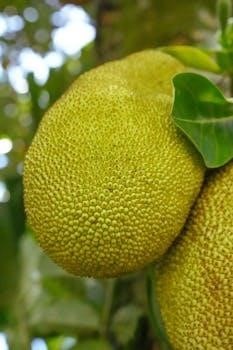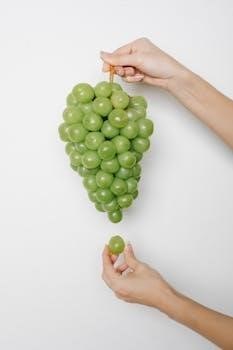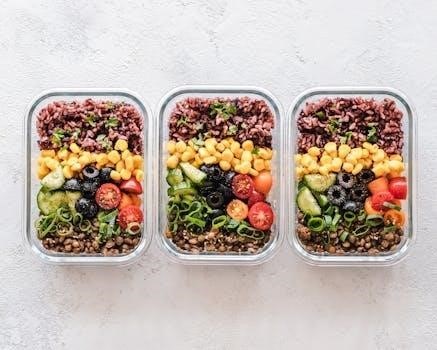
concussion diet pdf
Concussion Diet⁚ An Overview
A concussion diet focuses on fueling the brain with nutrients crucial for healing after injury. It emphasizes anti-inflammatory foods while limiting those that hinder recovery. This dietary approach aims to support brain function and reduce post-concussion symptoms through strategic food choices.

The Importance of Nutrition in Concussion Recovery
Nutrition plays a vital role in concussion recovery, impacting the brain’s healing process and overall well-being. Following a concussion, the brain experiences an energy crisis and metabolic changes that necessitate increased nutrient support. Proper nutrition provides the building blocks for neuron repair, reduces inflammation, and supports cognitive function. Deficiencies in key nutrients like omega-3 fatty acids, magnesium, and zinc can hinder recovery and prolong symptoms.
A well-planned concussion diet ensures the brain receives adequate fuel to restore function and heal efficiently. It involves consuming small, frequent meals with complex carbohydrates and protein to stabilize blood sugar levels and provide sustained energy. Avoiding processed foods, sugary drinks, and excessive caffeine can further support the brain’s recovery by minimizing inflammation and promoting optimal healing conditions.
Moreover, hydration is crucial for brain function and should be prioritized throughout the recovery process. Consulting with a healthcare professional or registered dietitian can help create a personalized nutrition plan tailored to individual needs and promote a faster, more complete recovery from a concussion. Therefore, understanding and implementing targeted nutritional strategies are paramount for effective concussion management.
Key Nutrients for Brain Healing After a Concussion
Following a concussion, certain nutrients are crucial for brain repair. Omega-3 fatty acids reduce inflammation, while magnesium and zinc aid neuron rebuilding and mood. Adequate protein supports tissue repair, and antioxidants combat oxidative stress, fostering optimal brain healing.
Omega-3 Fatty Acids
Omega-3 fatty acids, particularly EPA and DHA, are vital for brain health and recovery after a concussion. These essential fats play a crucial role in reducing inflammation, supporting neuronal function, and aiding in the repair of damaged brain tissue. Studies suggest omega-3s may improve cognitive function, mood, and overall neurological recovery following a traumatic brain injury.
Foods rich in omega-3 fatty acids include fatty fish like salmon, mackerel, and tuna, as well as flaxseeds, chia seeds, and walnuts. Incorporating these foods into your diet can help provide the necessary building blocks for brain healing.
For those who struggle to consume enough omega-3s through diet alone, supplementation may be a beneficial option. Fish oil supplements are a common choice, but algal oil supplements are also available for vegetarians and vegans. It’s essential to consult with a healthcare professional or nutritionist to determine the appropriate dosage and form of omega-3 supplementation for individual needs and circumstances.
Ensuring adequate omega-3 intake can contribute significantly to a comprehensive concussion recovery plan, supporting optimal brain function and overall well-being.
Magnesium and Zinc
Magnesium and zinc are two essential minerals that play critical roles in brain health and are particularly important during concussion recovery. Following a concussion, the levels of these minerals in the brain can drop significantly, potentially hindering the healing process. Magnesium is known for its anti-inflammatory properties and its ability to help rebuild and repair neurons, while zinc has been shown to improve mood and cognitive function.
Magnesium-rich foods include leafy green vegetables like spinach and kale, nuts and seeds such as almonds and pumpkin seeds, and whole grains like brown rice and quinoa. Zinc can be found in foods like oysters, red meat, poultry, beans, and nuts.
Supplementation may also be considered to ensure adequate intake of these minerals, especially if dietary sources are insufficient. However, it’s important to consult with a healthcare professional before starting any new supplements, as excessive intake of either magnesium or zinc can lead to adverse effects.
Including magnesium and zinc-rich foods in your diet, or considering supplementation under medical guidance, can support optimal brain function and aid in a smoother recovery after a concussion.
Foods to Include in a Concussion Recovery Diet
A concussion recovery diet should be rich in nutrients that support brain healing and reduce inflammation. Prioritize foods that provide essential vitamins, minerals, and antioxidants to aid in the recovery process. Focus on incorporating a variety of colorful fruits and vegetables, as they are packed with antioxidants that protect brain cells from damage. Berries, such as blueberries and strawberries, are particularly beneficial due to their high antioxidant content.
Include sources of lean protein, such as fish, poultry, beans, and lentils, to support tissue repair and provide the building blocks for neurotransmitters. Fatty fish, like salmon and tuna, are excellent sources of omega-3 fatty acids, which are crucial for brain health and reducing inflammation.
Opt for whole grains like brown rice, quinoa, and oats instead of refined grains, as they provide sustained energy and are rich in fiber, which supports gut health. Nuts and seeds, such as almonds, walnuts, and flaxseeds, offer healthy fats, vitamins, and minerals that contribute to brain function.
Don’t forget to incorporate foods rich in magnesium and zinc, such as leafy green vegetables, nuts, seeds, and legumes, as these minerals play important roles in brain repair and cognitive function.
Foods to Avoid During Concussion Recovery
During concussion recovery, it’s crucial to avoid foods that can hinder the healing process or exacerbate symptoms. Processed foods, often high in unhealthy fats, added sugars, and artificial additives, can promote inflammation and interfere with brain function. Limit your intake of fast food, packaged snacks, and sugary cereals, as these offer little nutritional value and can contribute to a sluggish recovery.
Avoid excessive amounts of caffeine, as it can disrupt sleep patterns and worsen anxiety, both common symptoms after a concussion. Similarly, it’s best to abstain from alcohol, as it can impair cognitive function, interfere with medication, and prolong recovery time. Sugary drinks, such as soda and fruit juice, should also be limited, as they can lead to blood sugar spikes and crashes, affecting energy levels and mood.
Be mindful of foods high in saturated and trans fats, commonly found in fried foods, processed meats, and baked goods. These fats can contribute to inflammation and negatively impact brain health. Additionally, some individuals may find that certain food additives or preservatives trigger headaches or other symptoms, so it’s essential to pay attention to how your body responds to different foods.
Consider reducing or eliminating artificial sweeteners, as some studies suggest they can have adverse effects on brain function. Focus on consuming whole, unprocessed foods to provide your brain with the nutrients it needs to heal effectively.

Sample Meal Plan for Concussion Recovery
This sample meal plan is designed to support brain healing and reduce inflammation following a concussion. It emphasizes nutrient-dense foods rich in omega-3 fatty acids, antioxidants, and other essential vitamins and minerals. Remember to adjust portion sizes based on individual caloric needs and consult with a healthcare professional or nutritionist for personalized guidance.
Breakfast⁚ Oatmeal with berries and nuts. Oatmeal provides complex carbohydrates for sustained energy, while berries offer antioxidants to combat inflammation. Nuts add healthy fats and protein for brain support.
Mid-Morning Snack⁚ Greek yogurt with a drizzle of honey. Greek yogurt is a great source of protein and probiotics, promoting gut health which is linked to brain function. Honey provides a natural energy boost.
Lunch⁚ Salad with leafy greens, grilled salmon, avocado, and a light vinaigrette. Salmon is rich in omega-3 fatty acids, essential for brain repair. Avocado provides healthy fats, and leafy greens offer vitamins and minerals.
Afternoon Snack⁚ Trail mix with nuts, seeds, and dried fruit. This provides a mix of healthy fats, protein, and carbohydrates for sustained energy and brain support.
Dinner⁚ Baked chicken breast with roasted vegetables (broccoli, sweet potatoes, carrots). Chicken breast is a lean source of protein, while roasted vegetables provide essential vitamins, minerals, and antioxidants.
Evening Snack (optional)⁚ Tart cherry juice. Tart cherry juice is a natural source of melatonin, which can help improve sleep quality, crucial for concussion recovery.
The Role of Hydration in Healing
Hydration plays a critical role in the recovery process following a concussion. The brain, being composed of a significant amount of water, requires adequate hydration to function optimally and facilitate healing. Dehydration can exacerbate concussion symptoms, such as headaches, dizziness, and cognitive difficulties, hindering the recovery process.
Proper hydration helps maintain optimal blood flow to the brain, ensuring that it receives the necessary nutrients and oxygen for repair and regeneration. Water also aids in the removal of waste products and toxins from the brain, promoting a healthier environment for healing. Furthermore, adequate hydration supports electrolyte balance, which is crucial for nerve function and overall neurological health.
During concussion recovery, it is essential to prioritize hydration by drinking plenty of water throughout the day. Aim for at least eight glasses of water, and consider incorporating other hydrating fluids like herbal teas, clear broths, and fruit-infused water. Avoid sugary drinks and excessive caffeine, as these can lead to dehydration and hinder recovery.
Monitoring urine color can be a helpful indicator of hydration status. Pale yellow urine generally indicates good hydration, while dark yellow urine suggests dehydration. Listen to your body’s thirst cues and drink fluids accordingly to maintain optimal hydration levels and support the healing process after a concussion.

Consulting with a Healthcare Professional or Nutritionist
Navigating concussion recovery, especially concerning dietary changes, is best done with professional guidance. Consulting with a healthcare professional, such as a physician or neurologist, is crucial for accurate diagnosis and a comprehensive treatment plan. They can assess the severity of the concussion, monitor symptoms, and rule out any underlying conditions that may be contributing to the challenges.
A registered dietitian or nutritionist specializing in brain health can provide invaluable support in tailoring a diet to individual needs and recovery goals. They can assess current dietary habits, identify nutrient deficiencies, and develop a personalized meal plan that incorporates foods known to support brain healing and reduce inflammation. Moreover, they can help navigate potential food sensitivities or allergies that might be hindering recovery.
Furthermore, a healthcare professional or nutritionist can provide evidence-based recommendations on supplements, such as omega-3 fatty acids, magnesium, and zinc, which may be beneficial in supporting brain function and reducing post-concussion symptoms. They can also monitor the effectiveness of the dietary interventions and make adjustments as needed based on individual progress.
Seeking professional guidance ensures that the dietary approach is safe, effective, and aligned with individual health needs and goals. It also provides an opportunity to address any concerns or questions and receive ongoing support throughout the recovery process.

Additional Nutritional Therapies and Research
Beyond the foundational dietary recommendations for concussion recovery, ongoing research explores additional nutritional therapies that may offer further benefits. These include investigating the potential of specific supplements and dietary patterns to enhance cognitive function, reduce inflammation, and promote overall brain health following a concussion.
One area of interest is the use of melatonin, known for its role in regulating sleep, as sleep disturbances are common after a concussion. Studies are examining whether melatonin supplementation can improve sleep quality and contribute to better recovery outcomes. Other research focuses on compounds like Enzogenol and MLC901, which have shown promise in improving cognitive failures, anxiety, and physical disability in individuals with brain injuries.
The ketogenic diet, a high-fat, low-carbohydrate dietary pattern, is also being investigated for its potential neuroprotective effects. By shifting the body’s primary fuel source from glucose to ketones, this diet may provide an alternative energy source for the brain and support neuronal repair.
Furthermore, the role of phytocannabinoids, compounds found in cannabis, is being explored for their potential anti-inflammatory and neuroprotective properties. However, more research is needed to fully understand the safety and efficacy of these therapies in the context of concussion recovery.
As research continues to evolve, it’s crucial to stay informed about the latest findings and consult with healthcare professionals to determine the most appropriate and evidence-based nutritional strategies for individual concussion recovery journeys.